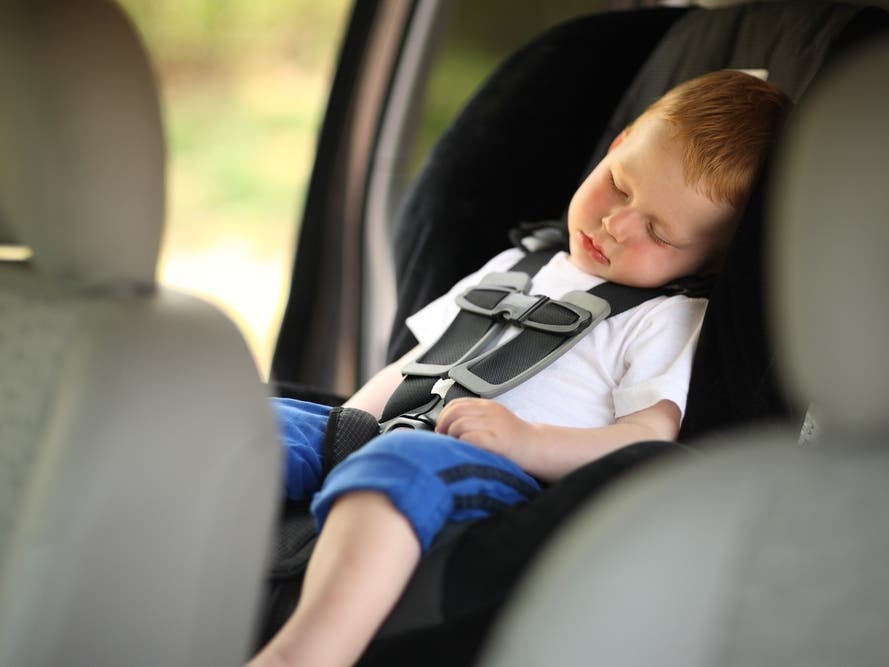Crime & Safety
Hot Car Deaths In Arizona: What Parents Need To Know
Deaths in Arizona have dropped in the past few years, but car interiors during Phoenix summers can easily shoot above 140 degrees.

ARIZONA — Six children in four states have died after being left in hot cars so far this year, a reminder to parents in Arizona that cars can heat up quickly, especially in the Valley's intense summer heat, becoming deadly in little as 10 minutes. So far this year, none of those deaths have been in Arizona.
Arizona parents are, unfortunately, familiar with the tragedy. From 1998 through 2021, 43 children age 14 and younger in our state have died of vehicular heatstroke, according to No Heat Stroke.
Per capita, that’s 32 hot car deaths per 1 million kids age 14 and younger, the statistics show. Arizona ranks 47th in the country for hot car deaths, near the top of the list for most deaths per-capita.
Find out what's happening in Across Arizonawith free, real-time updates from Patch.
In Arizona, the only hot car death that happened in 2021 was a 7-month-old baby boy left in a hot car in Mesa on Aug. 7. The prior year, 3-year-old girl died in a hot car in Phoenix on Aug. 30. In 2019, there were four hot car deaths in Arizona. A 1-year-old girl died in Glendale April 22, a 1-year-old girl died May 11 in Lake Havasu City, a 3-year-old girl died Sept. 3 in Gilbert and a four-month-old girl died in Phoenix on Oct. 1.
Research conducted by No Heat Stroke founder Jan Null, an adjunct professor and research meteorologist at San Jose State University, shows that on a 70-degree day, the temperature inside a vehicle can reach 89 degrees within five minutes. Within an hour, it can reach 113 degrees.
Find out what's happening in Across Arizonawith free, real-time updates from Patch.
It’s even worse on 90-degree days. Within five minutes, the temperature can reach 100 degrees; in an hour, it can reach 133 degrees. And in Phoenix and Tucson, where air temperatures regularly surpass 100 degrees, car interior temperatures can skyrocket to well above 140 degrees, according to the city of Phoenix.
Consumer Reports said its tests show temperatures inside cars can reach dangerous levels for children and pets within an hour. One test showed that when the temperature outside was 61 degrees, the temperature inside reached more than 105 degrees within an hour.
Young children are at a heightened risk of dying of heatstroke, and not only due to their inability to escape a hot car. A child’s body temperature rises three to five times faster than that of an adult, according to the National Highway Traffic Safety Administration. Heatstroke begins when the core body temperature reaches about 104 degrees, and children can die when theirs reaches 107.
In many cases, a parent completely loses awareness that the child is in the car, according to David Diamond, professor of psychology, molecular pharmacology and physiology at the University of South Florida who has studied the hot car deaths phenomenon for 15 years.
His research shows parents can forget their kids are in the car as a result of competition among the brain’s memory systems — the “habit memory” system that allows people to rotely perform routine tasks without thinking about them, and the “prospective memory” system used to plan. The habit memory system typically prevails, and the problem is particularly acute among parents experiencing sleep deprivation or stress, according to Diamond.
“Often these stories involve a distracted parent,” Gene Brewer, an Arizona State University associate professor of psychology, said in a news release. “Memory failures are remarkably powerful, and they happen to everyone. There is no difference between gender, class, personality, race or other traits. Functionally, there isn’t much of a difference between forgetting your keys and forgetting your child in the car.”
As the national child hot-car death toll since 1998 surpasses 900, the NHTSA offers some tips to help parents and other caregivers prevent leaving children in cars during hot weather.
- Never leave a child in a vehicle unattended — even if the windows are partially open or the engine is running and the air conditioning is on.
- Make it a habit to check your entire vehicle — front and back — before locking the door and walking away. Train yourself to “Park, Look, Lock,” or always ask yourself, "Where's Baby?"
- Ask your child care provider to call if your child doesn’t show up for care as expected.
- Place a personal item such as a purse or briefcase in the back seat, as another reminder to look before you lock. Write a note or place a stuffed animal in the passenger's seat to remind you that a child is in the back seat.
- Store car keys out of a child's reach, and teach children that a vehicle is not a play area. A quarter of all hot car deaths occur because the child got into an unlocked car, not because a parent left them inside, according to the NHTSA.
Get more local news delivered straight to your inbox. Sign up for free Patch newsletters and alerts.